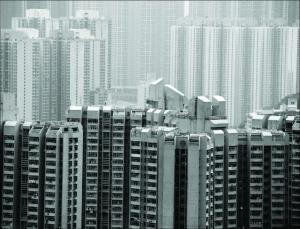
The Hong Kong government has readied a new batch of housing measures to help tackle the city's housing problems, which can be implemented any time when necessary, Chief Executive Leung Chun-ying said on Wednesday.
"Tackling the housing problem is a top priority. Property prices and rentals have continued to rise by such an extent they are now beyond people's affordability," said Leung.
|
 |
|
Residential housing developments stand in a New Territories district. Chief Executive Leung Chun-ying said on Wednesday the government is ready to tackle housing problems with a new batch of measures that can be implemented at any time. |
The Centa-City Leading Index (CCL), which tracks the city's home prices, has climbed for three consecutive weeks to a record high of 111.11 on Oct 12, having surged by more than 90 percent from 2009 levels.
A survey in the city showed that 90 percent of Hong Kong people said the prices are unaffordable.
Leung said the government has been emphasizing efforts in boosting supply. He added that two secretaries and other top officials had got together over the past weekend to talk about how to boost the city's land supplies.
The government has also been discussing with property developers on ways to speed up presales approvals as well as studying possible land conversion plans.
In a sign of a possible tactical shift, Leung talked about "demand management", which some analysts believe could mean measures to dampen demand.
The number of applicants on the city's public housing waiting list is approaching 200,000. About 65,000 private residential units are expected to be available in the next three to four years, according to the Chief Executive.
Leung, on Wednesday, said he recalled the government's notion that there is no housing problem but home ownership problem. Housing today is one of the four deep-rooted problems in Hong Kong, Leung admitted.
He said the government aims to stabilize property prices for now, by boosting home supply in the mid-term, and improving the living environment of Hong Kong people in the long-run.
However, property analysts see limited new approach options from the government given that Leung has just announced 10 new measures to alleviate the city's overheated housing problem in August.
"It is most likely that the government will extend the current Special Stamp Duty (SSD) to a longer-term and levy heavier tax on short reselling activities," said Wong Leung-sing, associate director of research at Centaline Property Agency Limited.
The SSD adopted in November 2010 aims to curb short-term property speculation, and it will go up to 15 percent if a sale transaction takes place within six months.
Set to fold up next month according to initial plans, the two-year-long housing measure also stipulated that the SSD will drop to 10 percent for homes resold within a one-year period and 5 percent for resale carried out between 12 and 24 months.
Vincent Cheung, national director of Valuation and Advisory of Cushman Wakefield in Hong Kong, said the SSD has barely impacted the market as most investors still made huge profits in home resales even after paying the SSD.
At the same time, a CLSA report released on Tuesday expected the Chief Executive to learn from Singapore how it had successfully imposed a special tax on home purchases by non-local buyers.
Last week, the Macao government announced a 10 percent special stamp duty on home transactions purchased by non-Macao residents or under a company.
But Cheung said the Hong Kong government may not adopt this rule as investors in the market these days are basically local residents.







